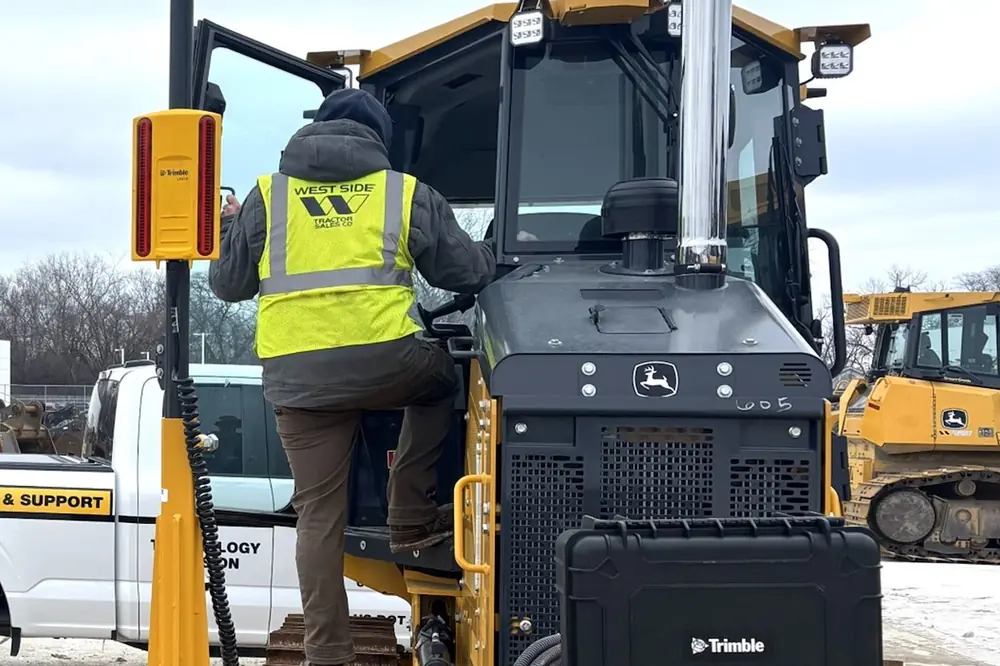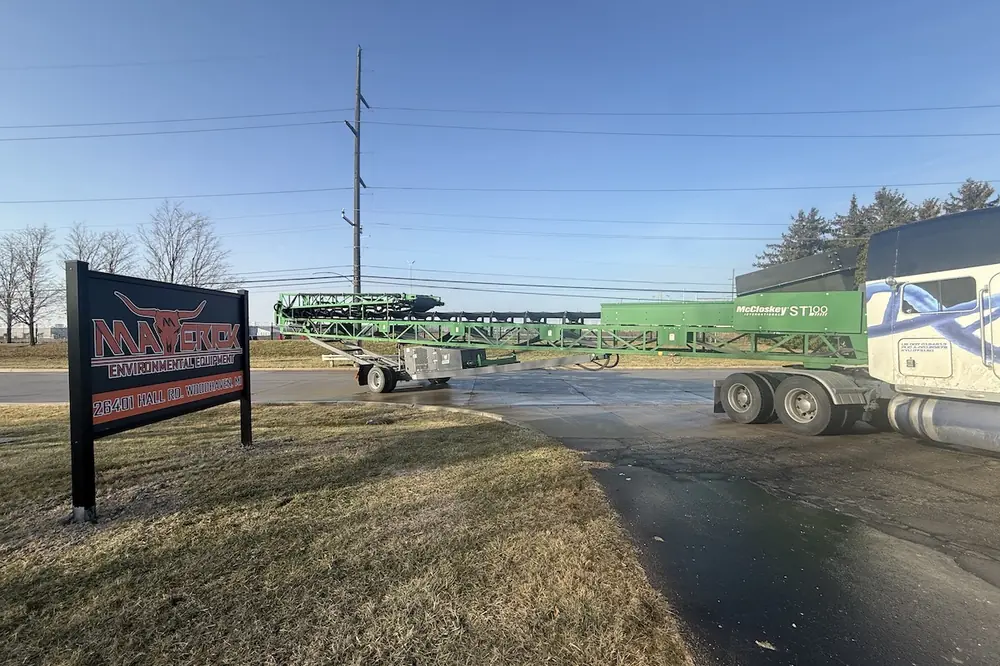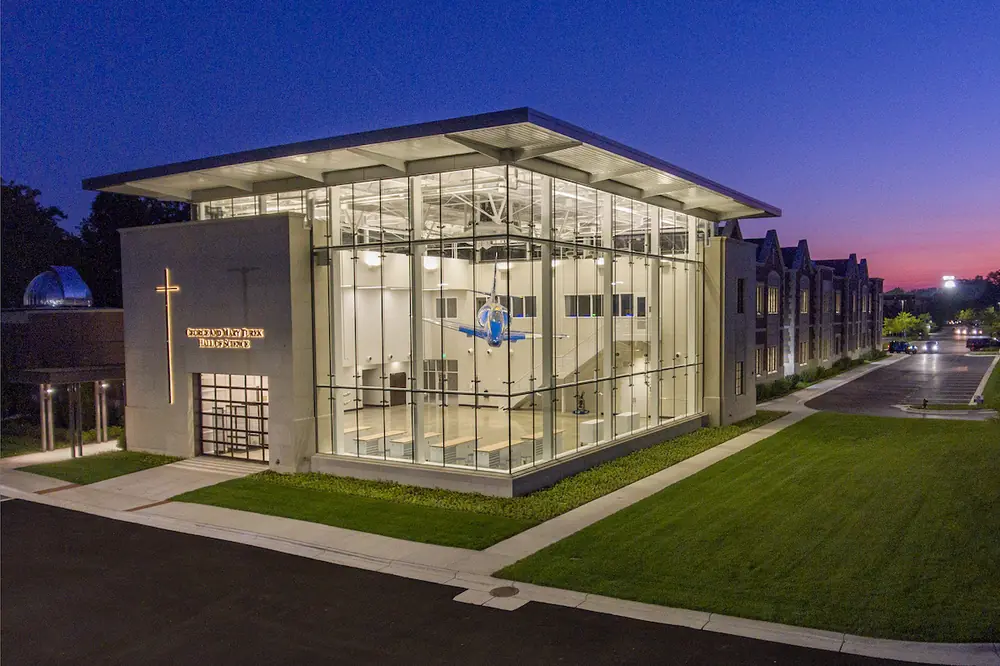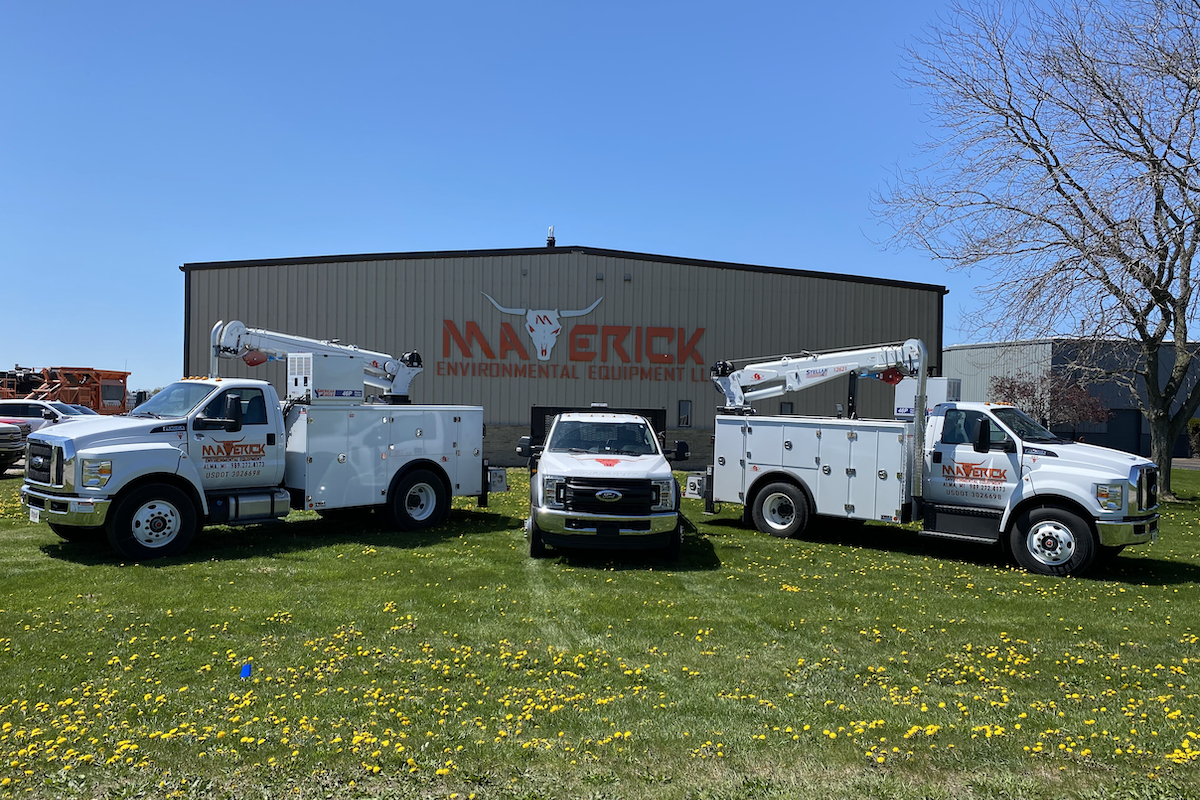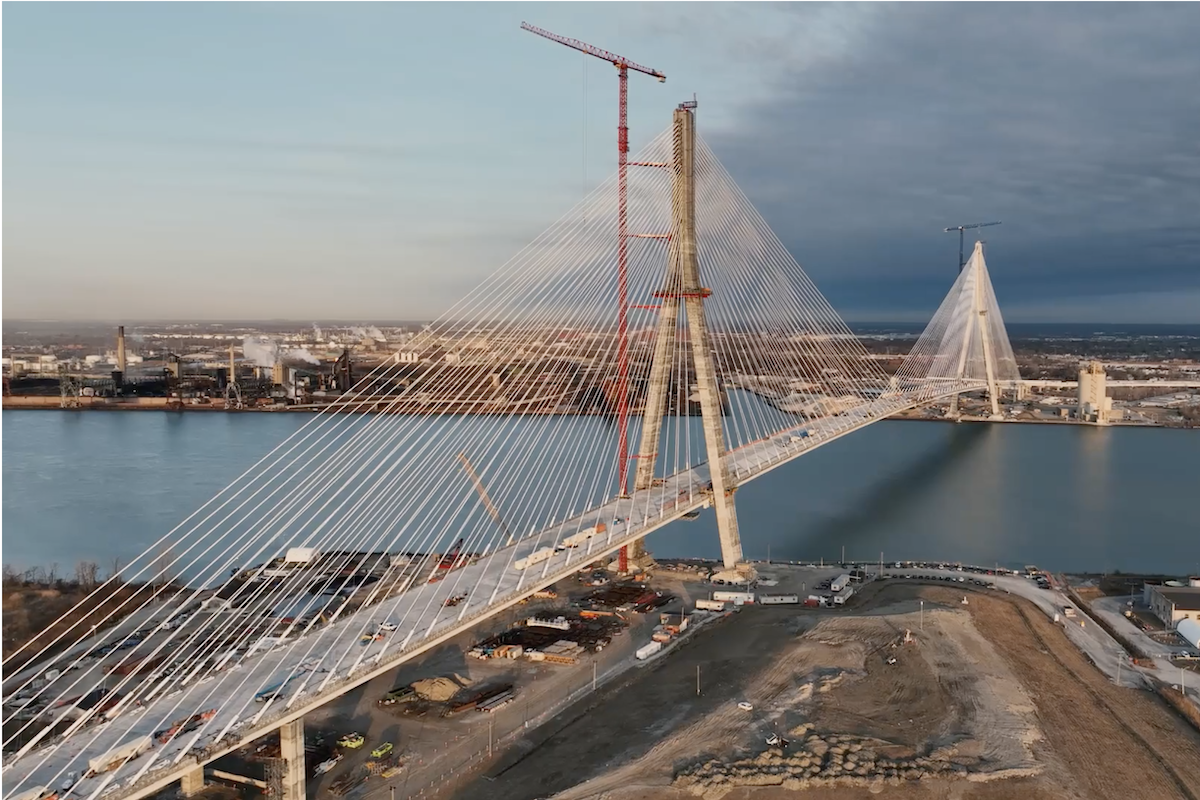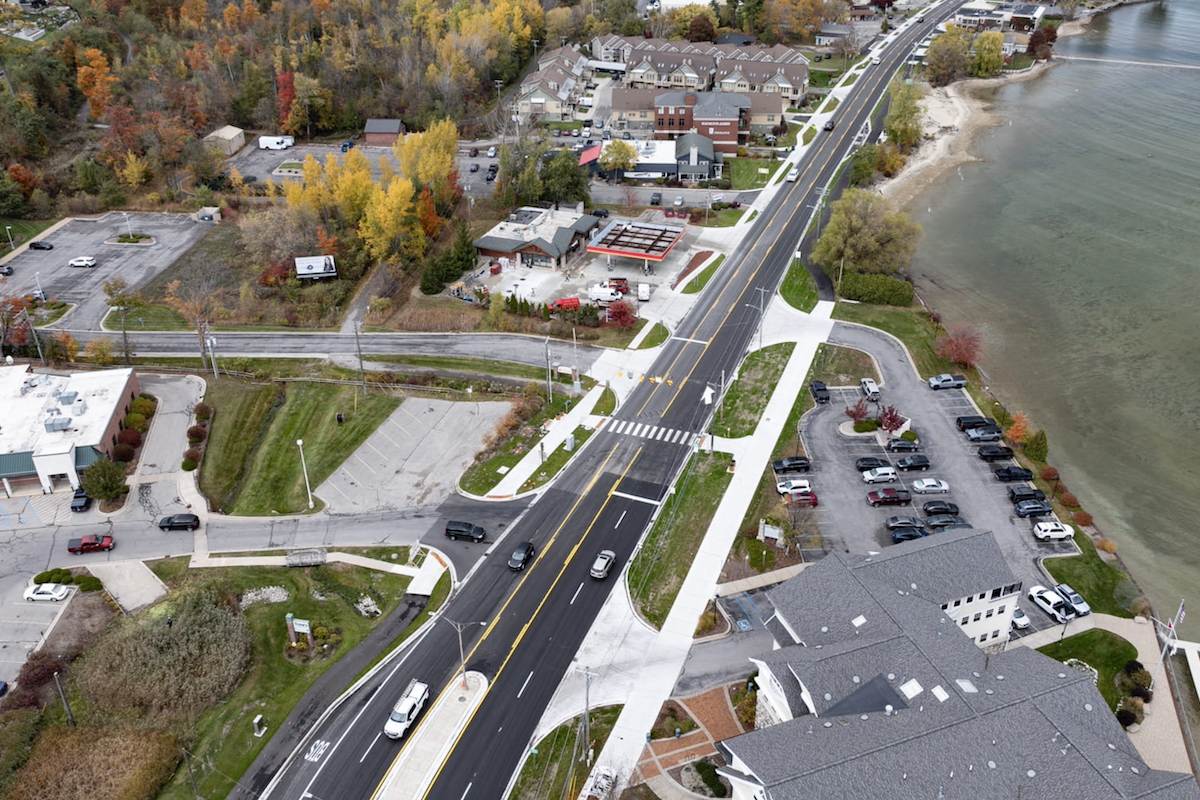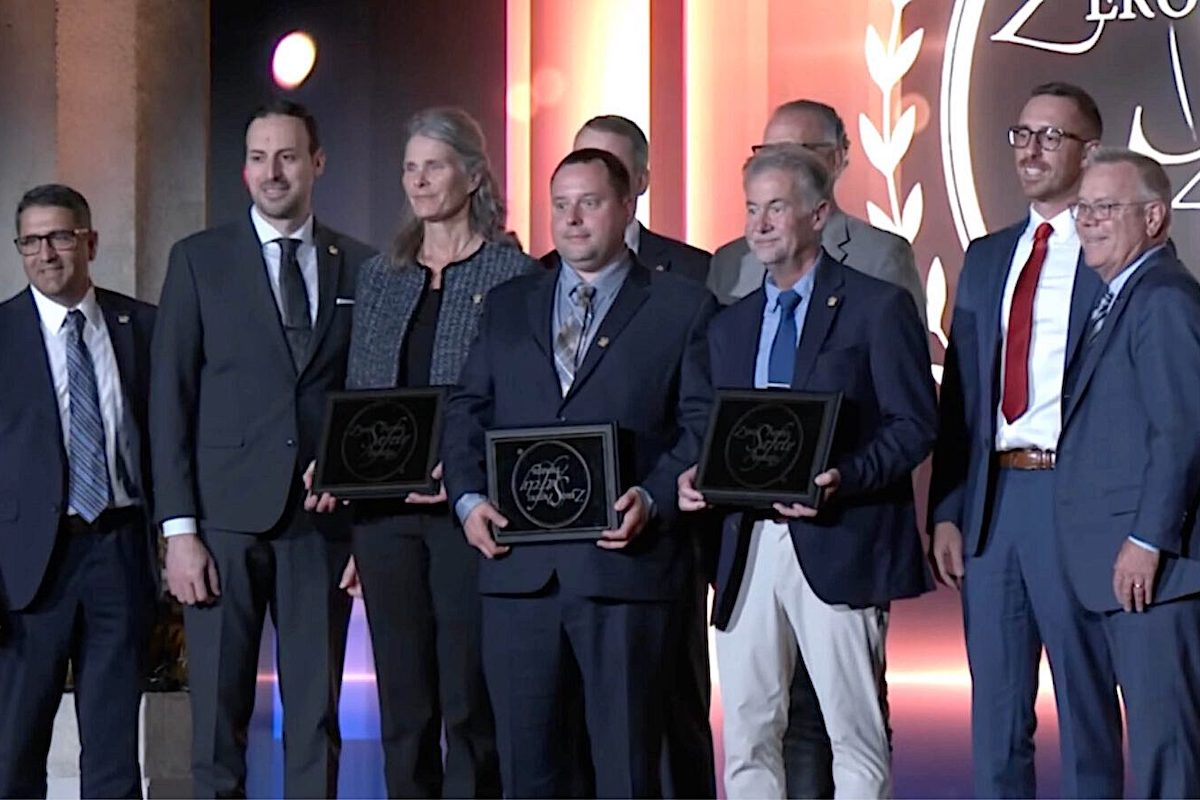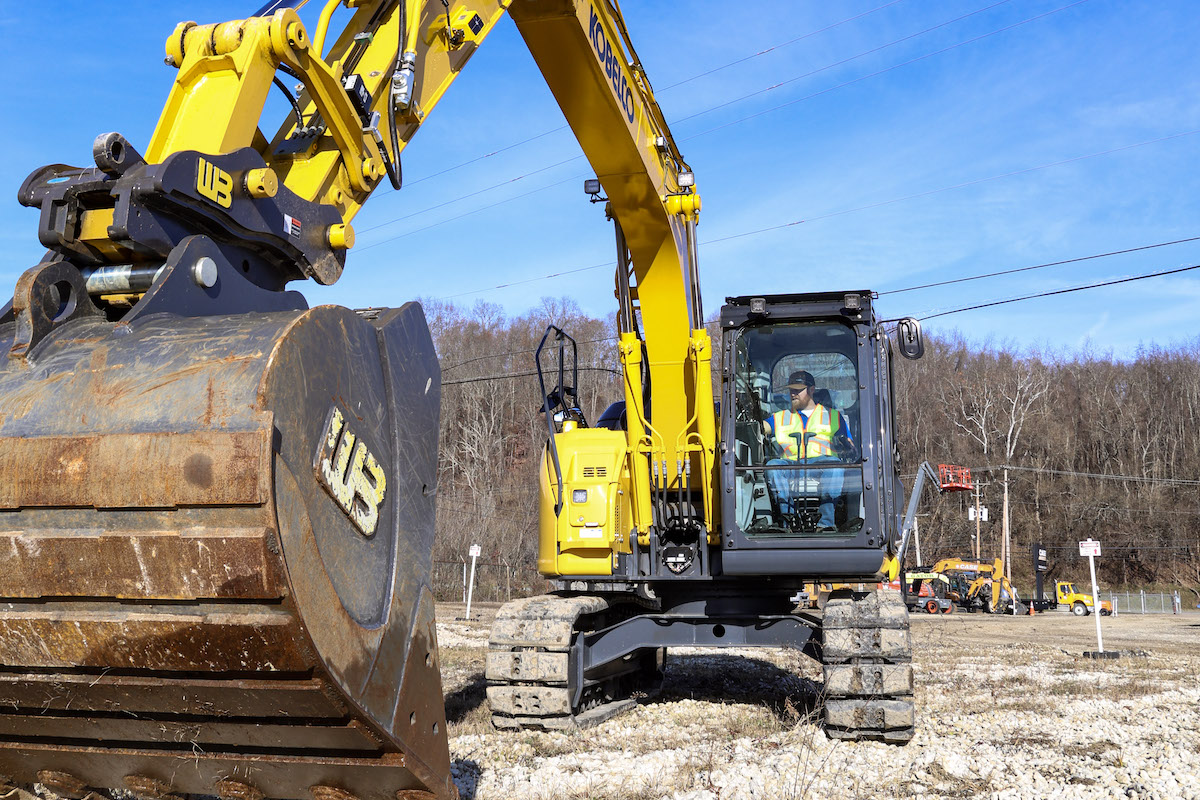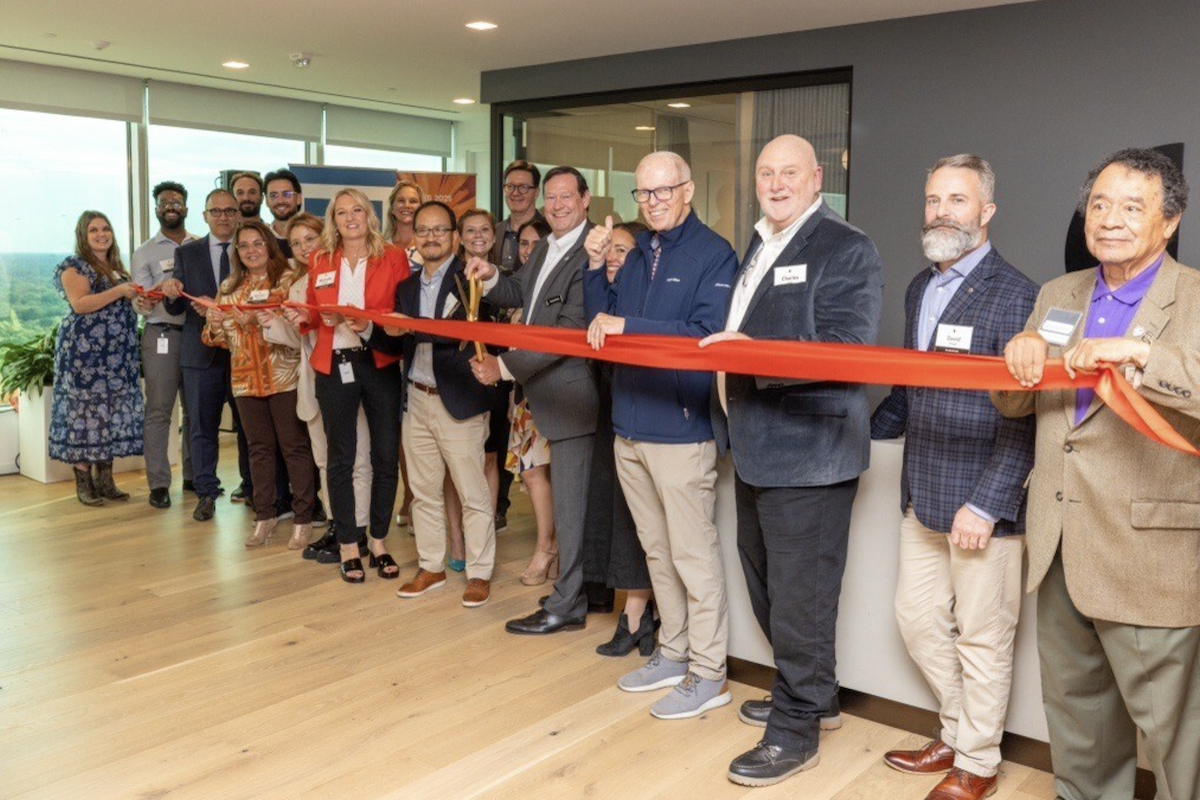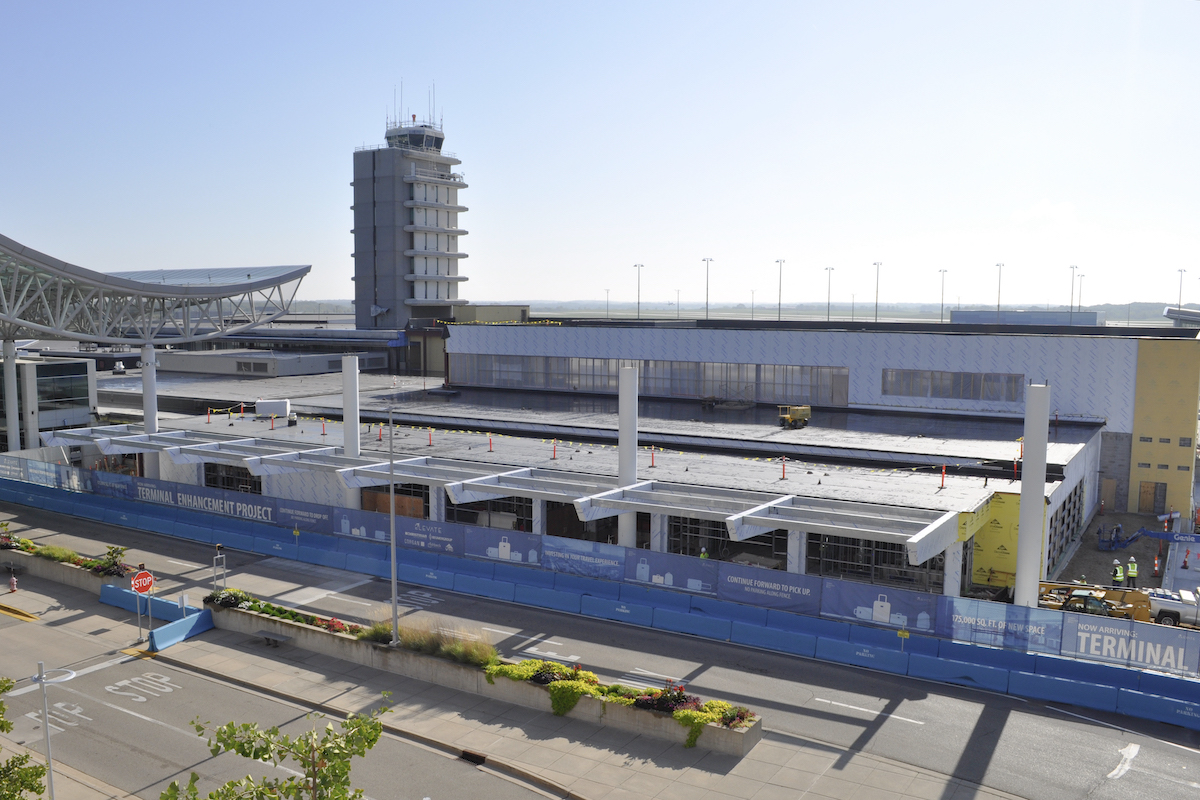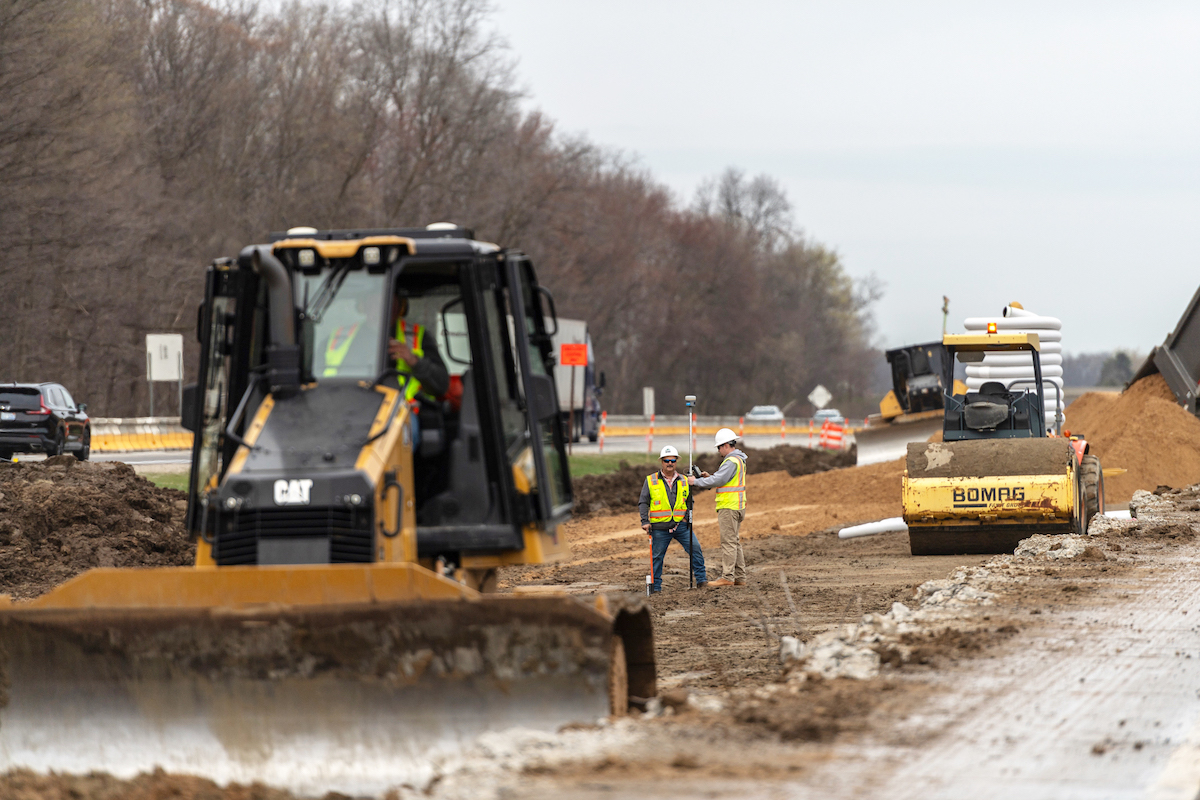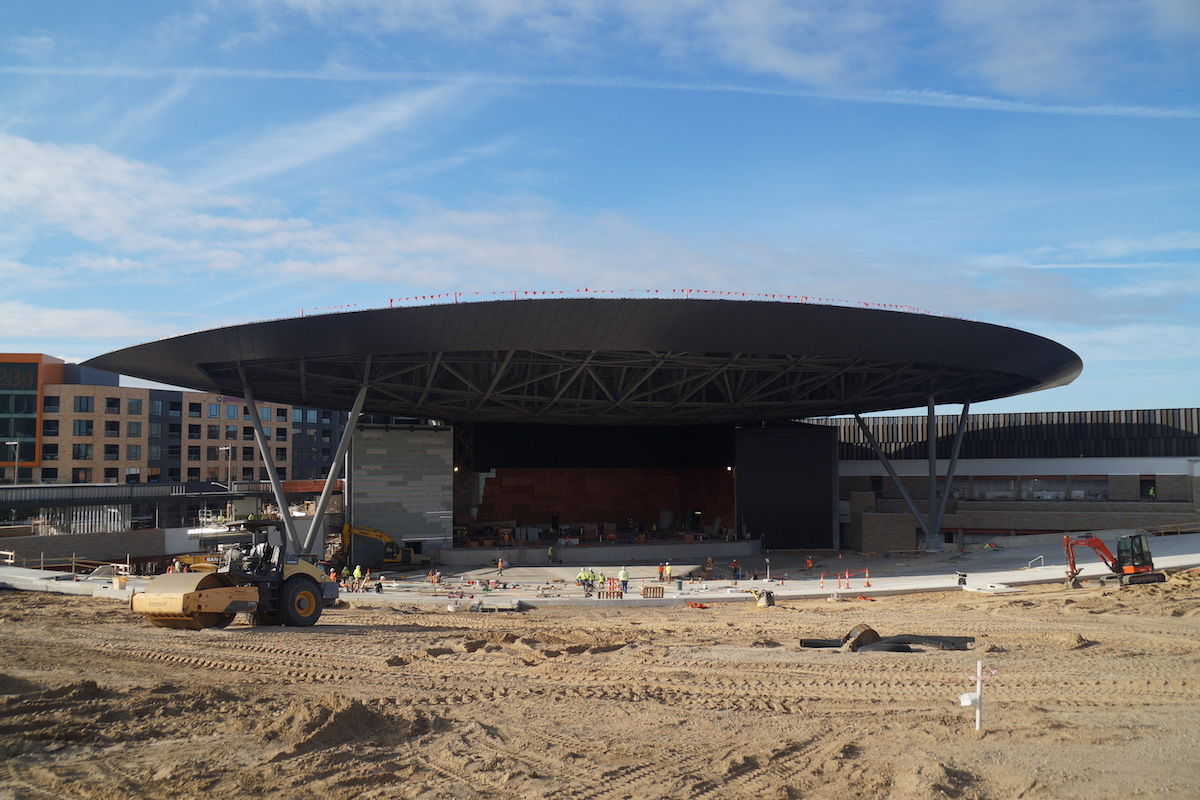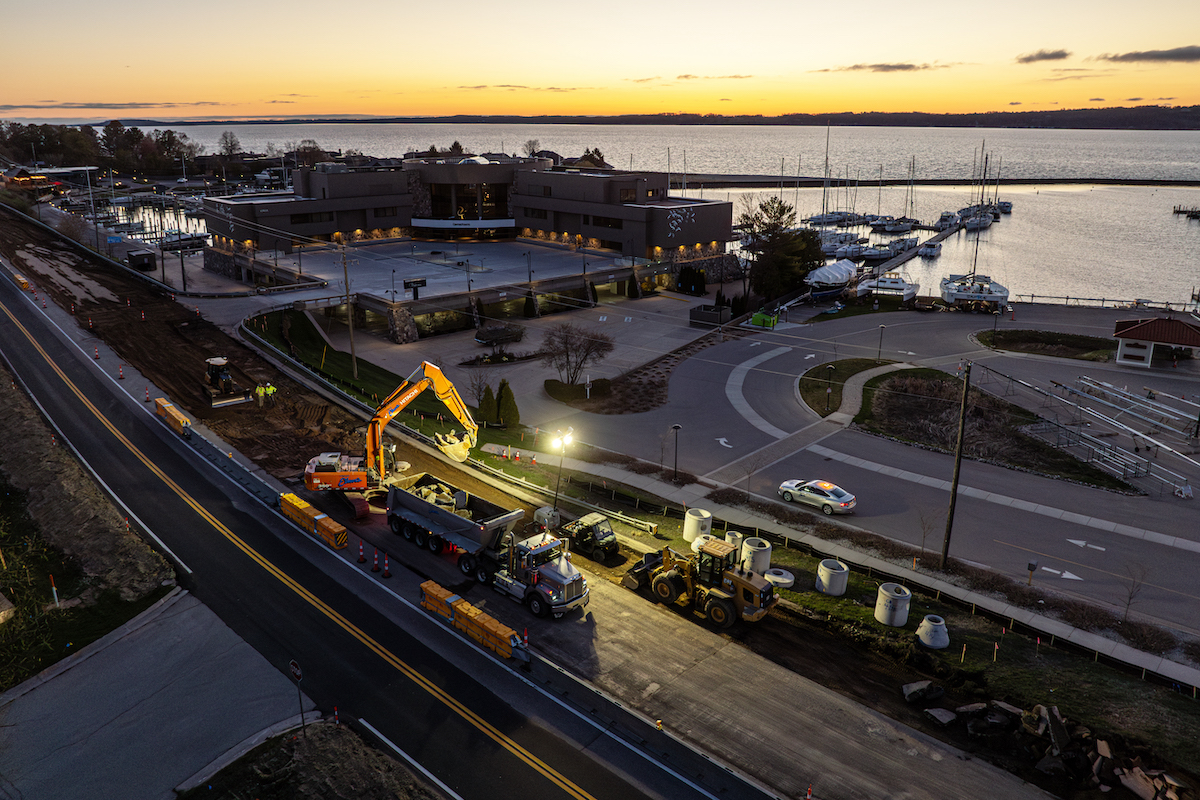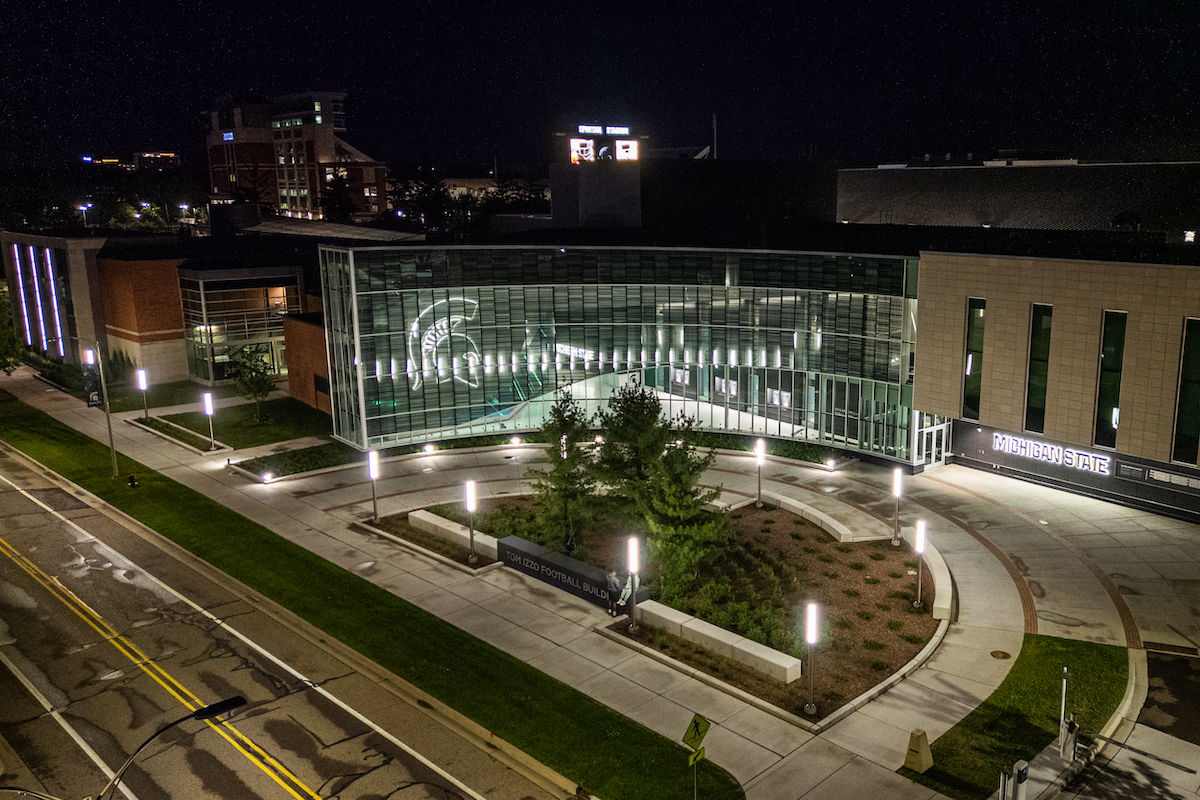“The premise is to not only build a qualified labor force to do work on other projects, but also for more companies to work with ODOT,” said Julie Meyer, P.E., ODOT’s Construction Project Manager. “We’re seeing not only a shortage in our workforce, but a shortage of capable contractors to back-feed some of our projects.”
In contracts for the $207 million Opportunity Corridor project, ODOT mandated thousands of on-the-job training hours for new workers and required prime contractors to involve new, small, and local companies, as well as businesses certified under the state’s Encouraging Diversity, Growth, and Equity (EDGE) program.
Encompassing nearly 1,000 acres, the 3.5-mile Opportunity Corridor Boulevard runs from East 55th Street at Interstate 490 to East 105th Street in University Circle, the square-mile home to museums, universities, hospitals, restaurants, and parks.
“It was originally conceived as the University Circle access boulevard, but the name Opportunity Corridor Boulevard was chosen by the stakeholder committee because they felt this project would bring opportunity to this historically underserved and economically depressed area,” said David Short, P.E., P.S., ODOT’s Design Project Manager.

| Your local Trimble Construction Division dealer |
|---|
| SITECH Michigan |
| SITECH Michigan |
ODOT divided the project into three sections with separate contracts (see “Project Overview”). Sections 1 and 2 already opened to traffic. Design-Builder Kokosing Construction Company, headquartered in Westerville, Ohio, is on schedule to open Section 3 in November 2021.
“Section 3 is definitely the most complex,” Meyer said.
Work for the 2.1-mile Section 3 includes lowering the end of I-490 by 25 feet, then building an at-grade structure to carry East 55th Street over the new boulevard; building two pedestrian bridges and four of the corridor’s five vehicular bridges; and constructing a railroad bridge in three phases to accommodate track relocations. In addition, Section 3 features a quadrant roadway to connect the grade-separated roads and allow traffic movements in each direction.
Throughout the entire corridor, the 35-mph boulevard includes new pedestrian and multi-use paths. Primarily financed by bond funds from the Ohio Turnpike and Infrastructure Commission, the project also utilized local funds from the City of Cleveland, Cuyahoga County, and the Northeast Ohio Areawide Coordinating Agency. The Federal Highway Administration and state sources funded some of the project’s early studies.
“This procurement method allowed us to deliver the projects sooner than we could’ve with a traditional design-bid-build job,” Meyer said. “It also offered us the opportunity to obtain the highest levels of diversity and inclusion efforts.”

| Your local Deere & Co dealer |
|---|
| AIS Construction Equipment |
| AIS Construction Equipment |
In the bid packages, ODOT required design-build teams to name a diversity, inclusion, and outreach consultant.
“The design-build team had to bring in a new member who was in tune with the neighborhood, as well as diversity and on-the-job training efforts,” Meyer explained. “That individual was critical in writing the plan so that diversity and inclusion were 100 percent incorporated.”
To help area residents work on the project, ODOT also specified job training requirements.
In Section 1, “We included a special project note that required the contractor to provide on-the-job training services for residents living in Cleveland Wards 4, 5, and 6 – the wards the project touches,” Meyer said. “We set aside 8,500 hours for residents who had never done work like this before – new laborers, operators, cement masons, and carpenters.”
The contractor exceeded that requirement with a total of 11,200 hours. Because of that success, “In the second project, we upped the number of on-the-job training hours to 10,000,” Meyer said. “We also opened up those hours to white-collar or professional services, as well as blue-collar services. We still required that the on-the-job training employees reside in Wards 4, 5, and 6.”

| Your local Trimble Construction Division dealer |
|---|
| SITECH Michigan |
| SITECH Michigan |
In Section 3, “Knowing it would be so expensive and run over multiple years, we again upped the number of hours,” Meyer said. “We separated the hours into two goals. For blue-collar workers, we required 20,000 hours of on-the-job training; for professional services – administrative, sales, purchasing, etc. – we required 10,000 hours. As of June 2021, we tracked 21,081 hours. They still have through June 2022 to complete the project, so they’ll far exceed their goal.”
For new, small, local, and EDGE companies, ODOT set an overall project goal of 20 percent of contracting dollars. In Section 3, the design-build team committed to over 40 percent of contracting dollars, and 80 of their 100-plus subcontractors meet that goal.
“We’re dealing with Norfolk Southern railroad and the Greater Cleveland Regional Transit Authority (GCRTA),” she said. “We also have a multitude of utilities through this area, as well as property owners, tenants of houses, and commercial entities. We have to be more in tune with residents and how the commercial entities do business – how they need to get a truck in and out of a driveway and whether the driveway is big enough.”
Because of that, “The coordination is daily and continuous, from letters in mailboxes to phone calls to knocking on doors,” Meyer said.
In addition, “The design-builder hired a coordinator whose sole responsibility is communicating with the utilities, the railroad, and GCRTA,” Meyer said. “During the design and start of construction, all he did was talk to utility companies. We had public and private utilities, documented utilities and unknowns we found. Some of the relocation efforts were done by our contracting team. Other private utilities were required to do their own, so he coordinated their schedule with our schedule so everybody got things done on time.”

| Your local Trimble Construction Division dealer |
|---|
| SITECH Michigan |
| SITECH Michigan |
“Those bridges were opportune for this type of construction because they were excavating the roadway from underneath,” Meyer said. “The contractor saved costs on temporary shoring and laying back slopes, and it enabled them to stay within the tight footprint.”
To build the structures, “They bored and put in foundations working from the surface, then the bridge was constructed at the surface,” Short explained. “Later they excavated underneath it.”
For the retaining walls built with top-down construction, “They installed soldier piles into the ground, then they could excavate away the front face of those walls,” Short said.
The pace of work also contributes to crowded conditions.
“With the tight timeframe, we average around $6 million worth of work per month,” Meyer said. “We’re just over 2 miles from end to end, and since the start of construction, there’s been a piece of equipment or a person working in every inch. We’ll see that all the way up to opening for traffic.”

| Your local Trimble Construction Division dealer |
|---|
| SITECH Michigan |
| SITECH Michigan |
At the end of August, the project remained on schedule for a November 1 opening. Temperature-sensitive items – including surface course asphalt, landscaping, structural steel painting, concrete sealing, and final pavement striping – will be completed next spring to meet the overall completion date of June 2022.
- Owner – Ohio Department of Transportation; David Short, P.E., P.S., Design Project Manager; Julie Meyer, P.E., Construction Project Manager; Mark Gabele, P.E., and Kevin Kuntz, P.E., Construction Project Engineers
- Owner’s Consultant – HNTB, Cleveland; Matt Wahl, P.E., Senior Project Manager; Sarah Brown, Transportation/Planning Section Manager
- Contractors and Designers –
- Section 1 (Design-Bid-Build): Joint venture of McTech Corp, Cleveland, and Perk Company, Inc., Cleveland
- Section 2 (Design-Build): Great Lakes Construction Company, Hinckley, Ohio, and GPD Group, Cleveland
- Section 3 (Design-Build): Kokosing Construction Company, Westerville, Ohio, and Michael Baker International, Cleveland
- Section 1 – Built on .75 mile along the existing alignment of East 105th Street, construction began in winter 2014 and finished in spring 2018 with a $20.97 million low-bid construction contract.
- Section 2 – Construction of 0.6 mile of new roadway began in spring 2016 and finished in fall 2018 with a $35.33 million design-build contract.
- Section 3 – 2.1 miles of new roadway began construction in fall 2018 and will open in November 2021 with a $150.86 million design-build contract.
Photos courtesy of Ohio Department of Transportation
















